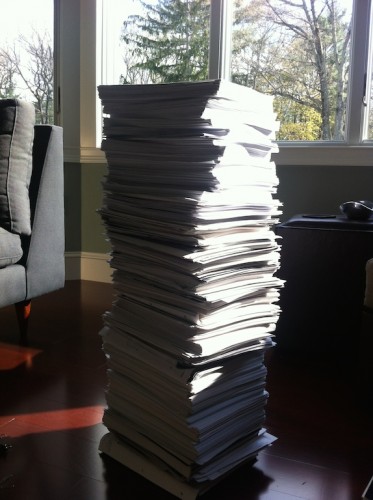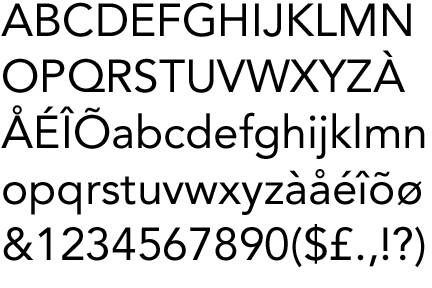Write On
What is it that inspires us to write? The pressure of a deadline? Competitive word counting, à la the #GraftonLine project? A serendipitous discovery in the archive?
For me, inspiration has taken many forms. Pressure, yes. Guilt, yes. Excitement, yes. But what has done more than just inspire me–what has actually changed the way that I write–is changing things up.
When I was a grad student, I felt that I could only write a dissertation chapter after I had accumulated huge files of notes, sifted through them multiple times, and organized my thoughts into long, detailed outlines.

My notes for *Trembling Earth”–a.k.a. The Tower of Knowledge
I would do all of this sorting for several months; when I finally sat down to write, I did so in my home office with the door closed, from 9:00 a.m. until whenever my brain was done. This was effective in the long run; I finished my dissertation using this writing strategy, and published Trembling Earth a little over two years later.
When I began to write Ruin Nation, I was teaching full-time; I still wrote chapter-by-chapter, after many months of note accumulation and organization, but I did not lock myself away for weeks at a time. I wrote whenever I could.
And then, Brian Craig Miller, the book review editor of Civil War History, asked me to review the first season of the AMC television show Hell on Wheels for the journal. There was no way I could write this like a traditional book review; the structure, characters, and narrative arc of the show demanded a different kind of approach, a new kind of critical voice. And so I left my office and settled in on a barstool at the island in my kitchen. And when I opened the word document, instead of choosing Garamond—the elegant and compact font in which I had written all of my academic work before this point—I trolled through the options and chose Avenir Book, a clean, rounded, more modern font that has a jovial look about it.

Avenir, my new font (for now)
In this new space, writing about popular culture in a completely different font, I finished that review in a matter of hours. This experience is what really changed my writing practice, enabling me to abandon obsessive editing and over-thinking, and to find my voice.
It has also helped me to advise students: my own, who were writing senior theses, and the graduate students of my colleagues. All of them were seeking advice about how to manage long-term writing projects, and how to work past writers’ block and fear. And so I have told them: do not be afraid to jettison old habits. Write someplace new, and before you are ready. Experiment with different genres. And change your font.
[answers to the *Midnight Risings* quiz: 1.A 2.B 3.B 4.A 5.B 6.A]
